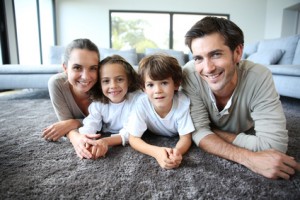 Family Therapy and Family Counselling seeks to improve the interactions among members of a family or similar close relationship in order to improve their functioning both as a unit and as individuals. This type of therapy is also called Systemic Therapy.
Family Therapy and Family Counselling seeks to improve the interactions among members of a family or similar close relationship in order to improve their functioning both as a unit and as individuals. This type of therapy is also called Systemic Therapy.
The family unit may either be a nuclear biological family (composed of the original parents and child/children), a stepfamily (with a stepparent and stepchild), an adoptive family (with an adopted child or children), a mixed family (with both biological and adopted offspring), an extended family (including grandparents and/or in-laws), a family with same-sex parents, or any other variation of the family relationship.
This type of therapy emphasises the role of the family relationship in the emotional health of its members. Healthy interactions within the home environment generally breed mentally and emotionally healthy individuals who are socially well-adjusted; conversely, dysfunctional interactions may lead to mental, emotional, and/or behavioural disorders in any of the family members.
The goal of family therapy and family counselling is to help family members solve family problems and conflicts through improved communication, greater awareness of childhood and adolescence issues, and better understanding of special family situations. Examples of special family situations are separation, divorce, remarriage, serious illness or death in the family as well as mixed marriages in terms of culture, race, or religion.
Family therapists may either be clinical psychologists, psychiatrists, or certified counsellors specializing in family and marriage therapy. They typically evaluate the family to be treated through a series of interviews with members of the immediate family as well as members of the extended family who may have symptoms of the disorder/dysfunction in question. Attitudes, problems, conflicts, behaviours, and other issues are often transmitted from one generation to the next.
Family therapists and counsellors pay particular attention to the type and intensity of expressed emotions, patterns of dominance and submission, communication styles, family roles, family alliances, family secrets, and emotional triangles. Emotional triangles usually consist of a child and his/her parents; two children and one parent; three siblings, a child, a parent, and a grandparent; or a husband, wife, and an in-law.
Family therapy views the family as a living organism. The systems theory evaluates members in terms their positions or roles within the family system as a whole. Rather than trying to “fix” a specific member, it changes the way the system works. This allows each family member to maintain a healthy sense of his/her own self while remaining emotionally connected to the rest of the family.
If you’re looking for a family therapist, please visit our directory to view our counsellors.




